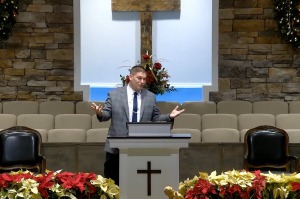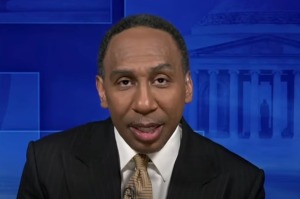Court: Censoring Student's 'God' Speech Is Unconstitutional
The Montana Supreme Court on Friday ruled 6-1 in favor of a valedictorian who was barred from mentioning God or Christ in her graduation speech.
The school district in Yellowstone County violated Renee Griffith's constitutional right to free speech, the high court ruled.
"We find it unreasonable for the School District to conclude that Griffith's cursory references to her personal religious beliefs could be viewed by those in attendance at the BHS (Butte School District) graduation ceremony as a religious endorsement by the School District," Justice Patricia O'Brien Cotter wrote in the opinion.
The decision reverses a lower court's ruling that the school district's practice of excluding expression of personal religious views in student speeches was a reasonable basis for its action against Griffith.
Griffith, one of the ten valedictorians in the class of 2008, was scheduled to deliver a speech jointly with another student at the 2008 graduation ceremony. Part of her prepared remarks included: "I didn't let fear keep me from sharing Christ and His joy with those around me. I learned to impart hope, to encourage people to treat each day as a gift. I learned not to be known for my grades or for what I did during school, but for being committed to my faith and morals and being someone who lived with a purpose from God with a passionate love for Him."
The valedictorian was told that religious references were not permitted in graduation speeches and that she had to omit references to "God" and "Christ" in her speech. Griffith refused to do so, saying that she could not accurately convey her high school experience without mentioning these motivations for her accomplishments, actions, and life purpose.
She was offered an alternative – to change the "God" and "Christ" references to "faith."
Again, Griffith refused the changes. As a result, she was pulled from delivering the valedictory speech.
The student filed a complaint with the Montana Human Rights Bureau shortly thereafter, alleging discrimination against her on the basis of religion. The complaint was dismissed.
She then filed a complaint in the Thirteenth Judicial District, claiming that the school district violated her state and federal constitutional rights to free speech and freedom of religion. The court, however, ruled that the district's decision prohibiting Griffith from speaking did not violate the First Amendment.
She appealed.
The high court ruled that the school district violated its own written policies of non-censorship. One of the policies states that "the school administration shall not censor any presentation or require any content" and that students who are selected to speak may choose to deliver "an address, poem, reading, song, musical presentation, prayer or any other pronouncement of their choosing."
"We hold that the School District violated Griffith's right to freedom of speech under the First Amendment of the United States Constitution when it impermissibly censored the content of her valedictory speech based on the viewpoint she expressed," the court concluded.





























